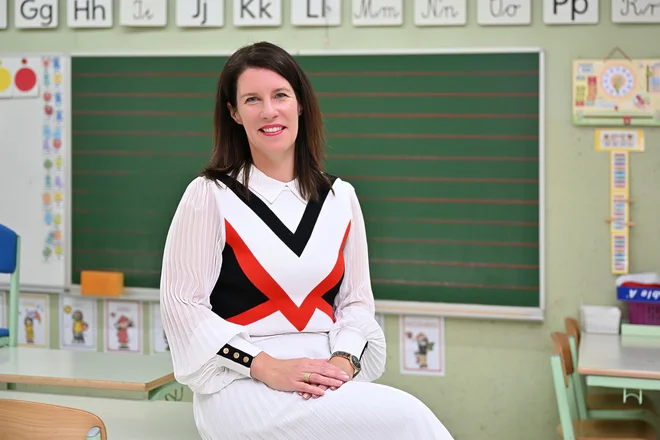When the fragments lose meaning

Than teacher I often wondered if I see the meaning in the content I teach. What is the knowledge of calculating fragments compared to when students cannot coexist, participate or resolve disputes? What is the knowledge of fragments compared to the hardships they were dealing with at home or with friends – for example, parents separation, exclusion between classmates.
I remember the situation where boys and girls quarreled in the classroom. One of the girls asked the question, but the boy blurted out why he asked such stupid questions. The class planned into a quarrel, to the border of the fight. At that moment, I knew: lessons can continue, but there will be no knowledge.
So again I found myself in a great deal: should I continue with the substance and « do what I have to » – the curriculum, explanation, evaluation -, should I stop the clock and resolve the conflict with the students? If I choose the first, we go with the substance forward, but no one listens to me. If I choose another, I risk the clock « lost », I can be called to defend an unfulfilled curriculum, maybe even heard the parents’ complaint – you did not process the fragments or have not learned them. Certainly, this will cost me a sense of peace, because I am lagging behind the substance and, consequently, stress, pressure.
And at the same time … I was bitten by questions: can I even lead such a mediation conversation? Do I have enough knowledge to support students in solving the conflict?
Mateja Peršolja, expert leader of the Institute Photo: Iztok Dimc
Teachers have more such challenges today, so I understand their call to reduce the scope of curricula. Fortunately, I worked at a school where it was clear: first relationships. Without a relationship, there is no quality learning. At the forefront was the student and the tracking of his pace, not the pace of the curriculum. I had a headmistress who understood that teaching was not only to intervene knowledge, but above all work with people. I had monthly supervision, a place where I was allowed to think aloud, share dilemmas, look for answers – without fear that I would be a bad teacher, and without fear of reducing my rating or salary because I can’t work with students or because I did not process the curriculum. I knew what was the priority and vision of the school and that the headmistress would stand behind me because she knew what I was doing and how I was doing. I was accepted, the way I am. So I dared to try anything differently, make a mistake or experience success. I was able to bring all this to class as well, as I wanted the students to feel the same as I did with my former headmaster.
So I was able to spend math hours talking about relationships, reading letters of young philosopher Umberto Galimberti. I was not a machine to produce standards in the students’ heads – I was a teacher who has a human being.
The headmistress heard us and thought with us what knowledge we needed to meet the challenges we face every year and know how to take care of ourselves. Because any discontent of students, an unreal conflict, authority from power was reflected on the other hand in students in the same way with power, destroyed school property and experiencing the weaker. Since we followed the students at school (and please do not put me in a drawer of permissive education – it was the opposite), the students felt that we were listening to them. They were heard. They appreciated that we care about them. There was less difficulty when they could express what weighed them, and when we were looking for paths together and allowed them to participate in the life of the school and contribute in areas where they see value. Together, we created performances, events, camps outside the school and different learning. Also for the price of a mathematics hour.
The tempo of learning was focused on the student, not the teacher, the asset or the curriculum. Learning was not a match, who will be the first and the best. It was a trip at your own pace. Some needed more time – and they got it. Others progressed faster – without being « better ». Therefore, students did not feel like numbers. They appreciated that we care about the teachers for them.
I will point out a student who was too fast for her pace of learning. When performing so-called self-paced learning, her learning speed was half-slower than other classmates, but no less effective. Perhaps that is why she had sufficient and negative grades. She had a bad self -image and problems due to eating disorders. Much was absent from classes. Feeling at school certainly did not contribute to her better self -esteem and confidence. When I discovered it as a teacher, I wondered if students who, due to the speed of learning, were unable to achieve the prescribed goals, were really worse math? What right do I give them a lower rating? Will she really be a worse educator because she will not be able to enroll in educational school? Will she be a worse citizen, worker, mother, partner? Yes, if she does not respect herself, and not if she does not know some mathematical surgeries. Who am I to sort and judge young people in the development process? Who am I to close the opportunity to choose a profession? Many of them are found in high school and are more successful than in elementary school.
I know that I want to be someone who reveals new opportunities, faith in myself and confidence in another.
***
Mateja Peršolja, expert leader of the Institute Begrejt
The article is the opinion of the author and does not necessarily express the position of the editorial board.






